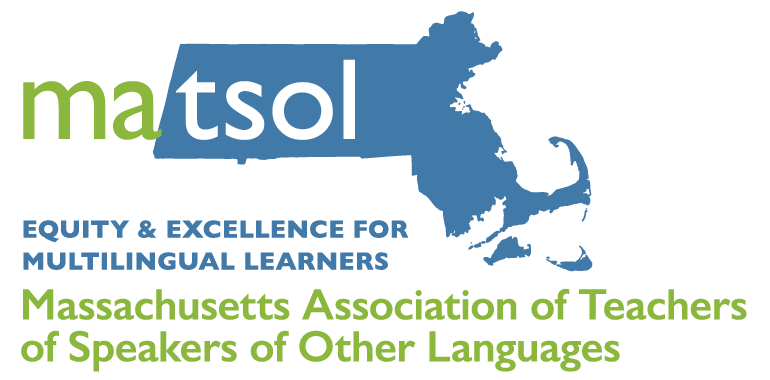MATSOL is pleased to announce a new collaboration between MATSOL, Massachusetts Association for Bilingual Education (MABE), and Massachusetts Council for Exceptional Children (MCEC). The Dual Language Special Education Network is for educators who support bilingual students who receive special education (or students who are bilingual and receive special education), including special educators, dual language teachers, ESL/ELL teachers and administrators.
Purpose of Network
- Networking and mutual support for educators who support students who are bilingual and receive special education, including Special Education, Dual Language, and ESL/ELL teachers and administrators.
- Supporting the growth of effective practices for dual language learners in the field of Special Education
- Providing professional development needs for special education teachers, staff, and administrators working with dual language learners
- Sharing research and field related program and instructional information regarding special education and dual language learners
The target audience includes Special Educators, School Psychologist, Speech and Language Pathologist, and other educational leaders interested in Special Education Issues (e.g., Moderate Special Needs, Director of Special Education, Institutes of Higher Education, Literacy and Instructional Coaches, Interventionists)
Membership
Meetings and eventsare open to MABE, MATSOL AND CEC members in good standing.
Meetings
- October 6, 2016 - Creating Inclusive Trauma Sensitive Schools, Dr. Susan F. Cole - Register via MCEC website
- November 16, 2016 - Topic in Practice: Writing Assessment Reports of bilingual students to determine eligibility for special education services - Register via MABE website
- December 1, 2016 - A Voice for Social Identity Formation and Self Expression, Dr. Rupal Patel, Founder & CEO, VocaliD - Register via MCEC website
- January 5, 2017 - Senses and Sensabilities: An Inside View on Autistic Sensory Issues, Dr. Stephen Shore, Professor, Adelphi University - Register via MCEC website
- January, 25, 2017 - Topic in Practice: A dialogue with health care professionals on assessments of dual language learners - Register via MABE website
